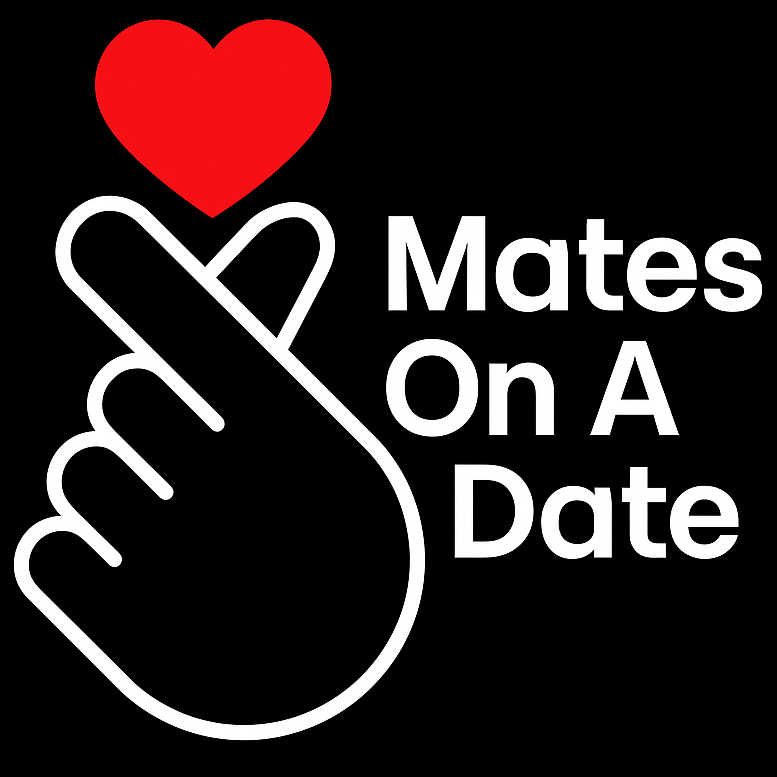
MatesOnADate.com Dating Safety Tips
Connecting with new people can be fun and rewarding, but it’s important to stay safe along the way. Whether you’re messaging for the first time or meeting in person, always trust your instincts and prioritise your safety. While you can’t control the actions of others, you can take steps to help protect yourself.
Online Safety
Never Send Money or Share Financial Information
Never send money to anyone you’ve only met online—even in an emergency. Sending money through wire transfers or other untraceable methods is risky and often used by scammers. Also, never share banking details, credit card information, or anything that can be used to access your accounts.
For more tips on avoiding romance scams:
🔗 https://www.consumer.ftc.gov/articles/what-you-need-know-about-romance-scams
Protect Your Personal Information
Avoid sharing sensitive information like your address, workplace, daily routine, or identification numbers. Parents should also limit any personal details about their children in profiles or early conversations.
Stay on MatesOnADate.com
Keep conversations on the MatesOnADate platform while getting to know someone. This allows us to monitor for unsafe behaviour and helps protect your information.
Be Cautious of Long-Distance or Overseas Contacts
Watch out for people who say they’re from your area but are currently stuck abroad, especially if they ask for money or avoid phone/video calls. If someone pushes for a relationship too quickly or won’t meet or talk in real-time, take it as a red flag.
Report Suspicious or Inappropriate Behaviour
Let us know if you encounter:
- Requests for money or donations
- Harassment or threats
- Offensive or inappropriate messages
- Fake or misleading profiles
- Underage users
- Unsafe behaviour during or after a date
- Spam or attempts to sell products or services
You can report issues directly through any profile or conversation. See our Community Guidelines for more details.
Protect Your Account
Use a strong password and be cautious when logging in from shared or public devices. MatesOnADate will never ask for your password via email. If you receive a suspicious message, report it here.
Meeting in Person
Take Your Time
Don’t rush into meeting. Use messaging, phone calls, or video chats to get a better sense of the person. Ask questions and watch for any red flags or inconsistencies.
Meet in Public
Always meet in a public place with plenty of people around. Avoid meeting at your home, their home, or secluded locations — especially for first or early dates.
Share Your Plans
Let a trusted friend or family member know who you’re meeting, where you’re going, and when. Make sure your phone is fully charged and accessible at all times.
Arrange Your Own Transport
Use your own transportation so you can leave at any time. Consider ride-hailing services or public transport. Avoid relying on your date for travel to or from the meeting.
Stay Sober and Aware
Know your limits with alcohol or substances — these can impair judgement and awareness. If someone pressures you to consume more than you’re comfortable with, leave the situation.
Don’t Leave Drinks or Belongings Unattended
Only accept drinks served by staff at trusted venues. Watch your drink at all times. Keep personal items like your phone, wallet, and ID with you.
Trust Your Instincts
If you feel uncomfortable, it’s okay to leave early. You don’t owe anyone your time. Staff at many bars and restaurants are trained to help if you ask discreetly.
LGBTQ+ Travel and Safety
Know the Local Laws
Some countries have laws or social norms that may put LGBTQ+ people at risk. Before travelling, research the legal and social climate regarding gender identity and sexual orientation.
Stay informed with updates from:
🔗 https://ilga.org – ILGA World: International LGBTQ+ rights and legal maps
If you are in a region with higher risk, consider hiding your profile or disabling location services on dating platforms for added privacy and safety.
Sexual Health & Consent
Practice Safer Sex
Use protection (like condoms or dental dams) during sexual activity to reduce the risk of sexually transmitted infections (STIs). Some infections like HPV or herpes can be transmitted through skin contact, so regular testing and vaccinations are recommended where available.
Get Tested Regularly
Not all STIs show symptoms. Regular testing is the best way to know your status and protect your partners. Contact a local sexual health clinic or healthcare provider for advice and testing.
Open Communication
Before becoming intimate, have an honest conversation about sexual health and boundaries. This includes discussing STI testing and comfort levels.
Helpful tips on communication and sexual health:
🔗 https://www.ashasexualhealth.org – ASHA (American Sexual Health Association)
🔗 https://www.talktesttreat.org
Consent Is Essential
Consent must be clear, mutual, and can be withdrawn at any time. Never assume. Pay attention to your partner’s words, actions, and comfort level. If someone is too intoxicated to consent, stop immediately.
More about consent:
🔗 https://www.rainn.org/articles/what-is-consent
Help & Support
If something goes wrong, you are not to blame. Help is available.
- If you are in immediate danger, contact your local emergency services.
- For mental health or emotional support, contact a crisis support organisation in your country.
- For issues related to sexual violence, support is available through hotlines and confidential services.
Global resources:
- 🧠 https://www.befrienders.org – Suicide and emotional support worldwide
- 💬 https://www.rainn.org – Rape, Abuse & Incest National Network (USA-based but with helpful info)
- 💬 https://throughline.org – Global crisis support locator


